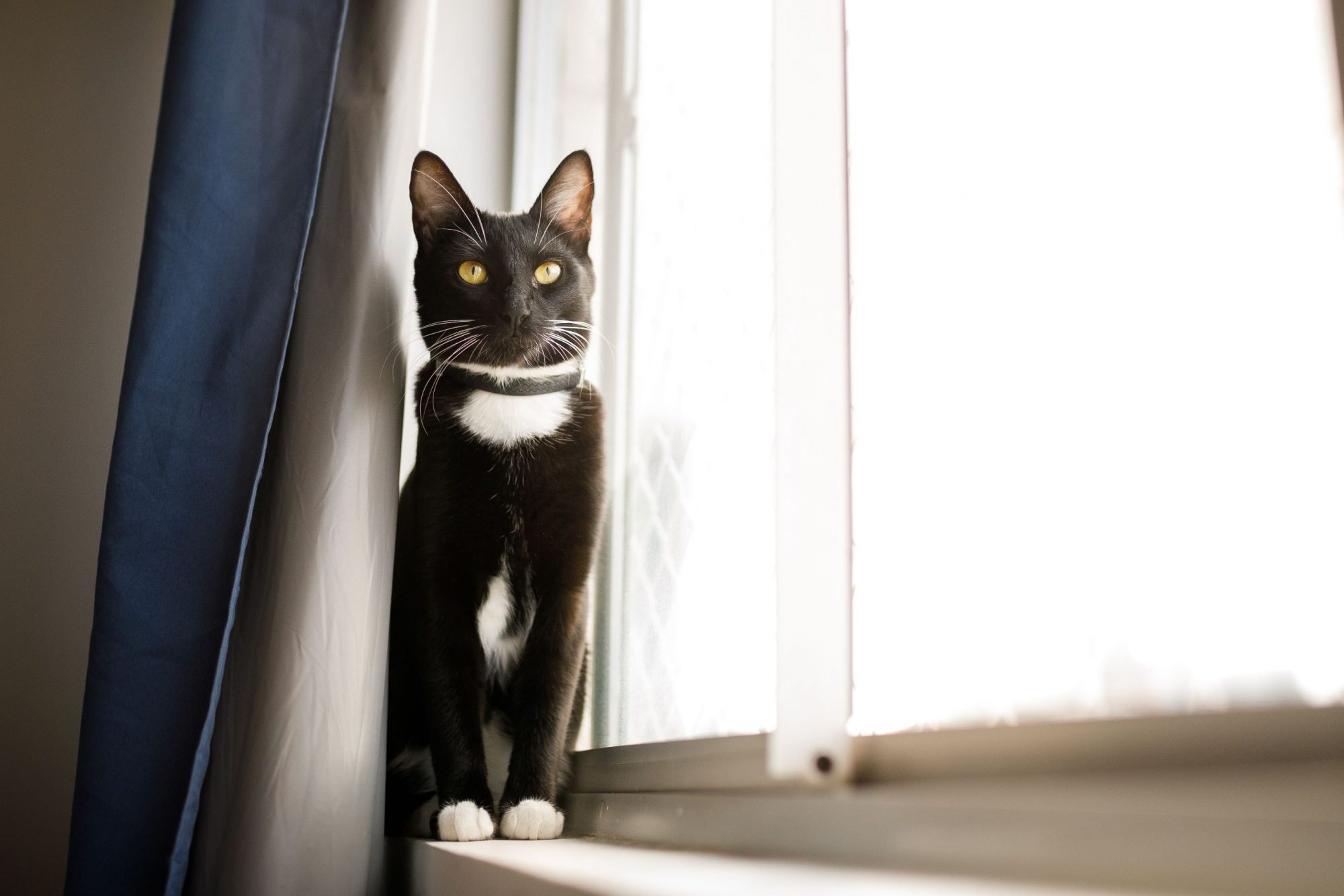Índice do Conteúdo
- Common Toxic Substances Your Cat Might Encounter Inside
- Common Toxic Substances Your Cat Might Encounter Outside
- Make Your Home Safe For Cats
- Keep Garage Doors Closed and Your Yard Clean From Pesticides
- Poison Prevention in the Greater Outdoors
- What Are Symptoms of Poisoning in Cats?
- What To Do If Your Cat Has Been Poisoned
- Don’t Hesitate to Call the Vet
In 2020, there were more than 400,000 reports of animal poisonings. It might seem like an unfathomably high number, but what many pet owners do not realize is that many of these poisonings are accidental. Knowing what is toxic to your cat can help you prevent the unthinkable. Here are some of our top cat poison prevention tips:
Common Toxic Substances Your Cat Might Encounter Inside
Everyday objects like a dog’s flea collar or an Easter lily plant can be toxic to your kitty, and it is important to have a good idea of these items before you leave your cat alone with them. Here are some of the most common toxic substances:
Poisonous houseplantsHuman foods and garbage—Many foods we love are toxic for pets including garlic (in all forms), onions, some fruits, and chocolate.Medicines & beauty products—A discarded toothpaste tube might be tasty but toxic for your cat.Flea prevention products meant for dogs onlyHousehold cleaners and detergents—Soaps, dryer sheets, bleach, and other cleaning products contain harsh chemicals that will make your cat sick.Holiday decor—There are so many ways holiday decorations can harm your cat. Keep watch on your cats around the holidays. All those fatty foods can hurt your pets, too!
Common Toxic Substances Your Cat Might Encounter Outside
If your cat spends any time outdoors, it is important to be aware of outdoor poisons he or she might encounter. Some of the most common are:
Lawn chemicalsPesticidesRodent poisonsAntifreezeMotor lubricants
Make Your Home Safe For Cats
Just because there are a lot of toxins in and around your home does not mean that your cat is going to get into them. There are plenty of steps you can take to ensure your cat’s safety, including:
Learn what household plants are toxic for petsTalk to us about the best foods to feed your pet to avoid feeding dangerous foods.Secure all household garbage and trash. A bit of garlic and a lick of an essential oil could put your kitty in the hospital!Make sure cleaning products are safely stored away from curious cats.Keep canine flea protection products away from your cat!Holiday decorations, from holly to tinsel, are hazardous to your cat. Poisoning, choking, strangulation, and intestinal blockage can happen to Kitty during the holidays.
Keep Garage Doors Closed and Your Yard Clean From Pesticides
Cats can get into toxic chemicals that you store in your garage (or basement). Make sure your kitty can’t get into toxic storage areas.
Poison Prevention in the Greater Outdoors
You can’t control what a roaming cat gets into, but you can monitor their behavior when they arrive home. It’s a good practice to clean their coats before they start grooming and ingest toxins they picked up on the road. If you see any signs of poisoning, call us immediately!
What Are Symptoms of Poisoning in Cats?
Knowing the symptoms of a pet poisoning in cats can help you act quickly to get them care. Look for:
BleedingBurns or blisters on lips, mouth, or skinDiarrheaExcessive drooling, foaming at the mouthNervous, skittishIrritated skin/eyesLoss of consciousnessSeizuresSluggishShakyTrouble breathingUlcers in the mouthVomiting
What To Do If Your Cat Has Been Poisoned
If you suspect your cat has eaten something toxic, wrap the cat in a towel or blanket, which can help you handle an already stressed cat. Call us immediately at (407) 792-0700.
Don’t Hesitate to Call the Vet
The quicker your pet gets to us, the quicker we can treat him. Poisons can cause permanent, devastating damage, and even death.
The second you suspect your cat has tangled with a toxin, call us. We’ll tell you what to do next and how to safely get your animal to our hospital.








